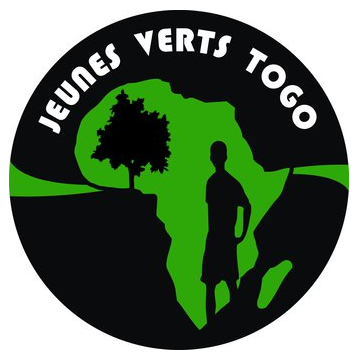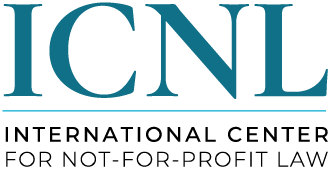Nigeria
WEST AFRICA CIVIC SPACE INDEX
Nigeria, the economic and demographic giant of Africa, grapples with formidable challenges in realizing an open civic space, as revealed through interviews and surveys. A detailed examination of the key indicators delineates Nigeria's civic space as " Constricted," marked by severe constraints on the freedoms of assembly, expression, association, and political participation.
Significant apprehensions encompass crackdowns on protests, systematic intimidation of activists and journalists, legal harassment befalling NGOs, a deficit of free and fair elections, rampant corruption, pervasive human rights transgressions perpetrated by security forces, and localized breakdowns of the rule of law. The confluence of deep political schisms, escalating insecurity, and economic tribulations compounds the restrictions on civic space. Nevertheless, Nigeria stands on the bedrock of a potent tradition of civil society advocacy and mobilization persistently championing rights despite the shadow of repression. The prospect of fostering openness hinges on the liberation from restrictions on civic freedoms and the empowerment of civil society.
As Nigeria held pivotal national elections in February and March 2023, the contest was competitive but marred by technical difficulties, logistical issues, violence, and accusations of intimidation and rigging. The state elections also witnessed disturbing incidents of voter intimidation and suppression. Nigeria's democracy remains fragile amid deep divisions. However, reforms focused on improving electoral processes, upholding rights, fostering inclusive governance, and enabling civil society participation will be vital to consolidate democratic gains.
Nigeria stands at a crossroads where substantive reforms are imperative. These reforms must transcend mere democratic aspirations, consolidating democratic institutions, ensuring accountability for rights violations, and fostering an environment conducive to an open civic space.
Indicator Assessments
Freedom of Assembly:
The exercise of the right to assemble is severely curtailed by authorities deploying force. A restrictive legal framework, coupled with poor implementation, quashes peaceful dissent.
Freedom of Expression:
Routine harassment and intimidation befall journalists, particularly when reporting on political or conflict-related matters. Critical speech confronts an environment intolerant of dissent.
Freedom of Association:
While the registration process for CSOs remains ostensibly straightforward, burgeoning bureaucratic hurdles and interference impede the full realization of CSO independence.
Rule of Law:
The judiciary grapples with a lack of independence, overshadowed by pervasive corruption that corrodes the foundations of governance. Frequent arbitrary detentions underscore the limited protections in place.
Political Participation:
Credibility eludes elections marred by the exclusion of opposition groups. Voter registration and the political inclusion of marginalized segments manifest inadequacies.
Civil Society Participation:
The space afforded to CSOs in influencing policymaking is excessively confined, with public consultations non-existent and civic engagement in decisions negligible.
Human Rights Protections:
Security forces perpetrate widespread abuses, ranging from extrajudicial killings to torture and sexual violence. Despite existing legal protections, enforcement remains lamentably poor.
Anti-Corruption and Transparency:
The battle against corruption remains uphill, despite the institutional measures in place. Limited government transparency and constrained access to information compound the challenges.
Safety of Activists:
Activists grapple with a constant barrage of threats, arbitrary arrests, torture, and extrajudicial killings. Impunity for such attacks fosters a pervasive climate of fear.
Access to Information:
The implementation of access to information provisions is a mere semblance, necessitating a substantial increase in the public availability of government data for transparency enhancement.
Challenges and Opportunities
Nigeria finds itself entwined in a complex web of challenges spanning conflict, freedom restrictions, corruption, and the disintegration of the rule of law and accountability. However, amid this labyrinth, the empowerment of civil society emerges as a singular opportunity.
Foremost among the challenges is the dearth of political rights, civic freedoms, and the ominous breakdown of constitutional order. The roadmap to recovery involves not only restoring democratic governance but also exacting accountability for rights abuses and fortifying the basic freedoms foundational to civic life.
The specter of widespread corruption and an opacity in governance has corroded public trust. Remedial action through anti-corruption reforms and enhanced protections for journalists and activists can act as a balm for governance.
The climate of fear and self-censorship stemming from conflict and rights abuses requires a twofold response: ensuring the safety of civil society and dismantling the restrictive edifices confining civic space.
Nevertheless, Nigeria's spirited tradition of civil society mobilization for democracy and human rights, resilient in the face of repression, stands as a beacon of hope. The removal of legal and administrative shackles on NGOs and activists could unleash their transformative potential, forging a path for comprehensive reforms.
Nigeria's historical tryst with democratic movements suggests a latent potential for pluralistic governance. However, shackles on freedoms and political participation have stymied the realization of this promise.
In essence, the revival of democratic order, the fortification of human rights, the fight against corruption, and the empowerment of civil society represent not just remedies but prerequisites for addressing Nigeria's interconnected challenges and fostering an environment conducive to an open civic space.
A meticulous analysis the indicators unequivocally categorizes Nigeria's civic space as " Constricted" signalling severe restrictions across the cardinal dimensions of civic life.




